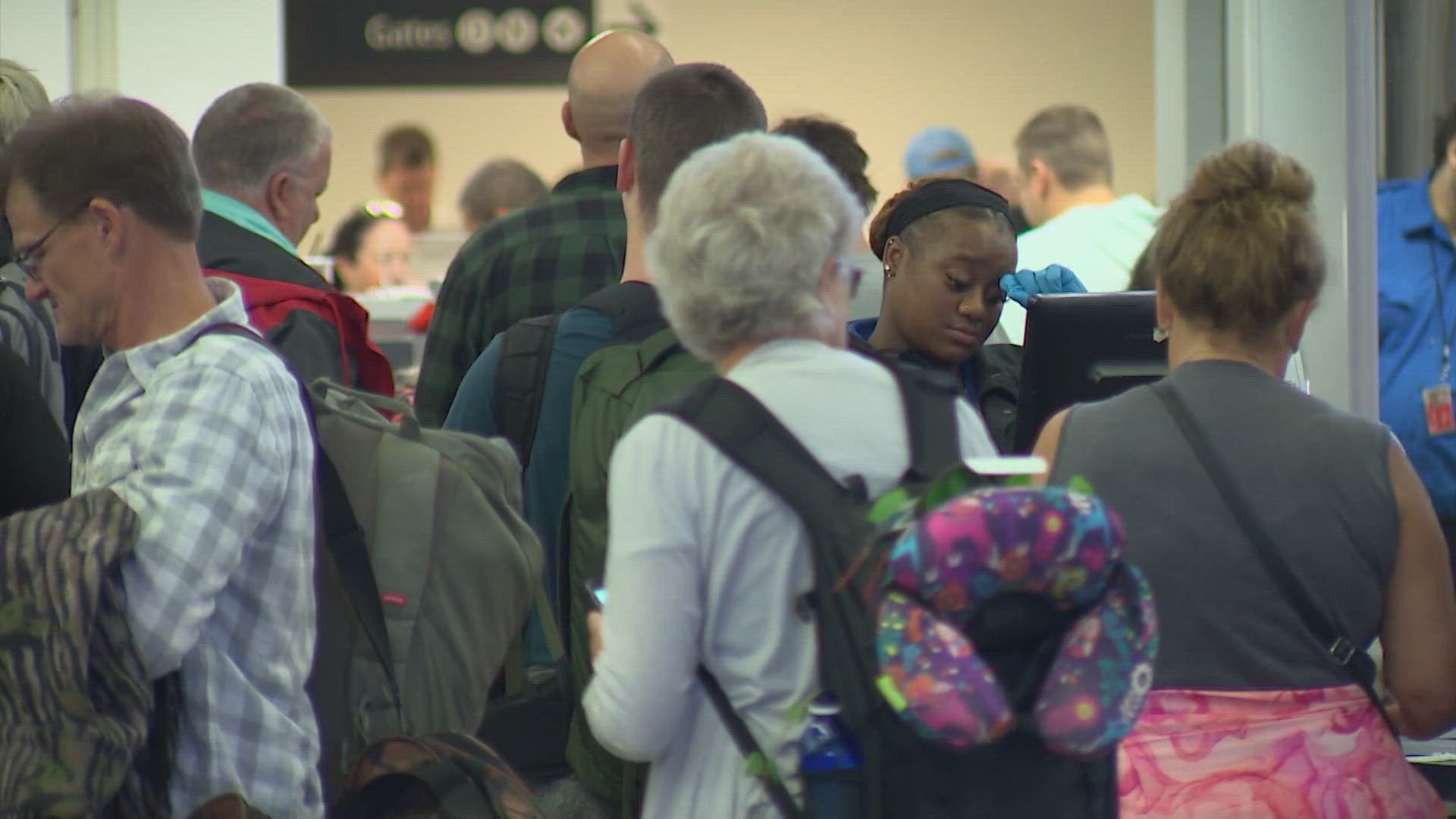SEATTLE — Tens of thousands of travelers dealt with long lines at SEA Airport Sunday, as the airport continues to work to resolve a cyberattack it's experiencing.
SEA Airport staff discovered unauthorized activity on the port system Saturday morning. They confirmed Sunday afternoon that this was a cyberattack.
Throughout the weekend, SEA Airport staff have had limited internet access.
"Including our ability to send and receive data, including email," said Lance Lyttle, Managing Director for the Aviation Department of Port of Seattle.
Public Internet users lost access to the airport’s website, portseattle.org.
No word yet, however, on who did the hacking or why.
"We don't know specifically what anyone might be after," Lyttle said. "We're still conducting active investigations going on right now."
Jean Koerner, a traveler at SEA Airport, said the lines were "constant."
"It’s affected the baggage system,” Koerner said. “So, they told us in an email and in a text try not to check a bag if you can. Well, we can't do that, we got a very large bag."
According to SEA officials, TSA was not compromised. But our crews did see long lines at security check-ins Sunday afternoon.
"The lines seem super long,” said Andrew Brackin who was flying back to his home in San Francisco Sunday. “Seems challenging considering the outages, people just trying to get home on a Sunday. Want to get home for Monday, so it's tough."
It's tough for airports like SEA, dealing with another disruption in its system this summer. Last month, the crowd strike outage not only impacted this airport but other airports and industries across the world. With travelers hoping this weekend's cyberattack, won't have the same effect.
"I hope it's nothing like that,” Brackin said. “Because I know that caused huge delays and people were struggling to get on flights for days, so hopefully this outage is resolved a lot faster."
It's unclear when the cyberattack will be resolved as SEA officials and crews work to get to the bottom of the issue.
"A lot of people are depending on you doing your job and getting it resolved as quick as possible," Koerner said.
A cybersecurity expert KING 5 spoke to said, "This is not something new.”
Emil Sayegh, the CEO and president of Profit Growth Insights, a cybersecurity consulting company, said, "Airports are big prizes for hackers, because you disrupt a lot of people's lives.”
Recently, Avril Haines, the Director of National Intelligence, told Congress that ransomware attacks grew 74% across the world last year, with U.S. entities most heavily targeted.
Sayegh said there could be a variety of motives for these bad actors, such as money, but he also said these are often tests to see if a perimeter can be breached, with future, more destructive plans in mind.
"I think this is probably motivated by people trying to figure out whether they can attack our critical infrastructure," said Sayegh about this weekend's incident at SEA.
In October 2022, in what Sayegh calls “a brute force attack on systems," Chicago O’Hare Airport, Los Angeles International Airport, and Atlanta Hartsfield-Jackson were among 14 airports that had their websites temporarily disabled by cyber attackers. Russian protestors claimed responsibility.
"But this looks like it's something different," Sayegh said. "Because it is-- it has been ongoing. Up and down. And it is affecting-- it looks like-- some of the baggage handling systems.”
While SEA staff work to find answers, they "can't yet say when this will be resolved," according to Lyttle.
But the pressure is on: the TSA expects next weekend to be the busiest Labor Day Weekend on record, across US airports.
"Imagine if this was next weekend," Sayegh said.
The TSA anticipates crowds at volumes 8.5% larger than the same weekend last year, at airports across the country.
But Sayegh said the bigger risk, when it comes to this cyberattack, is that we do not implement more rigorous security measures to protect ourselves in the future.
"The danger right now is that we move on and we forget about this after everything's recovered," Sayegh said. “It is not that complicated to protect against these threats.”

